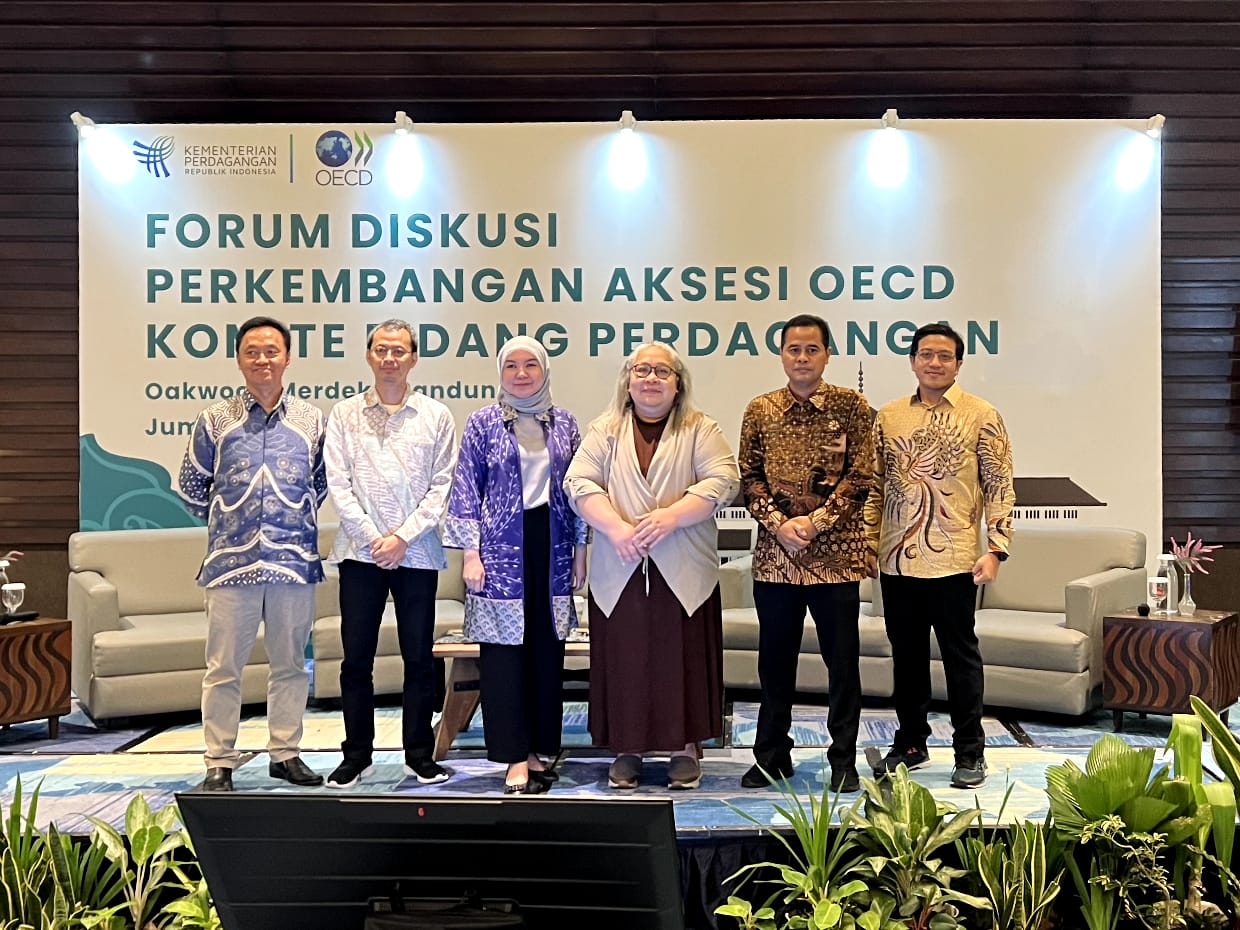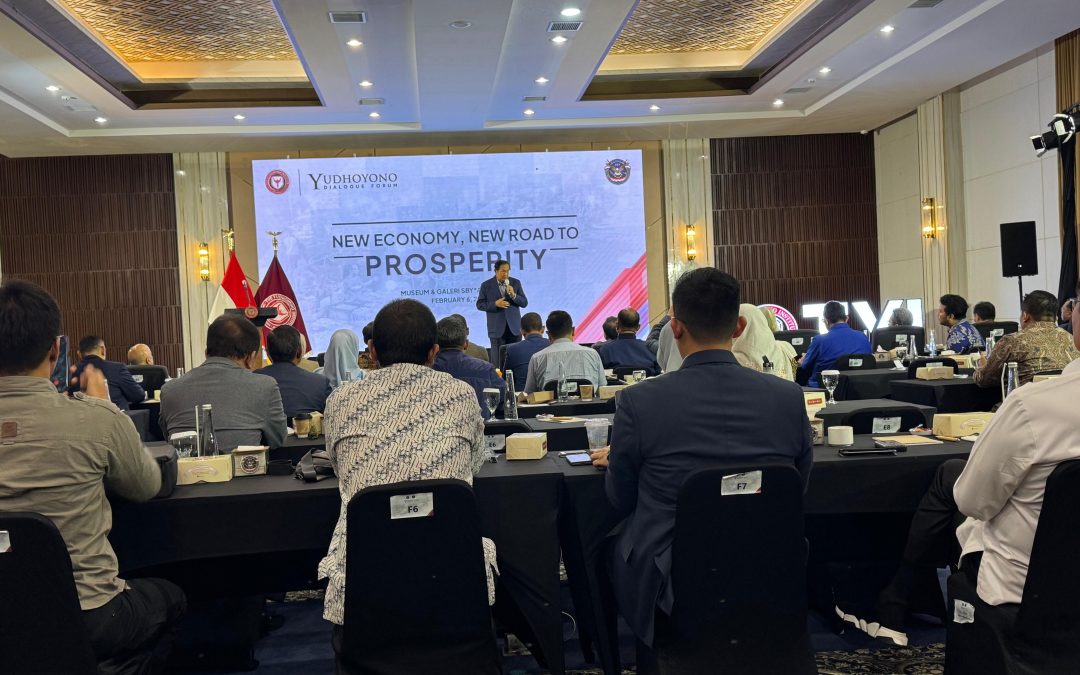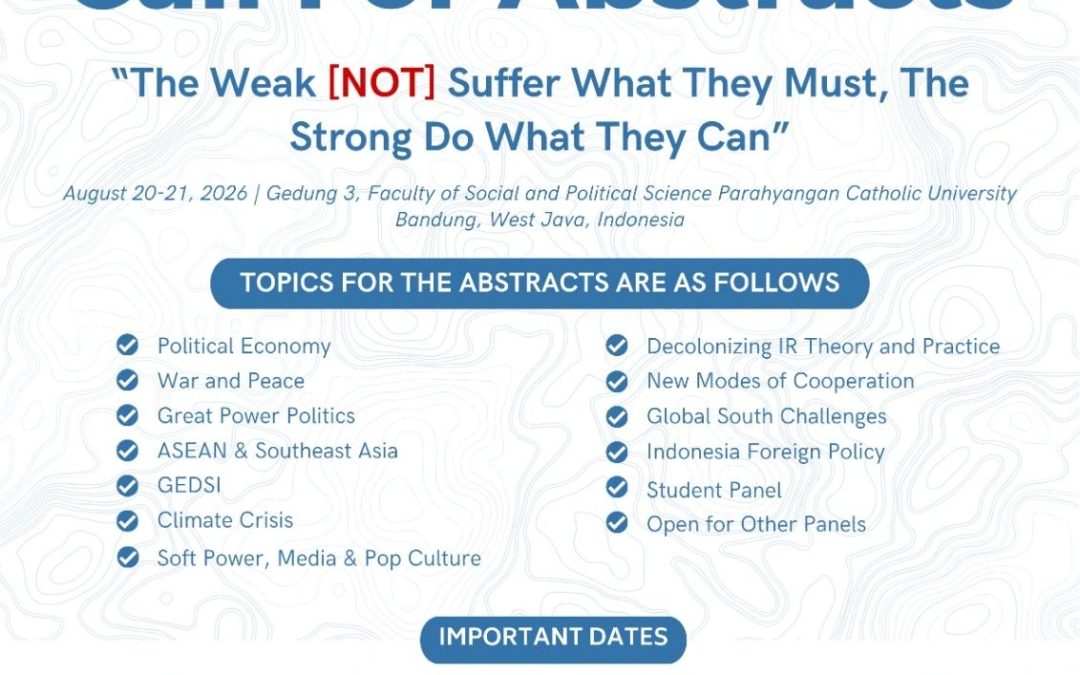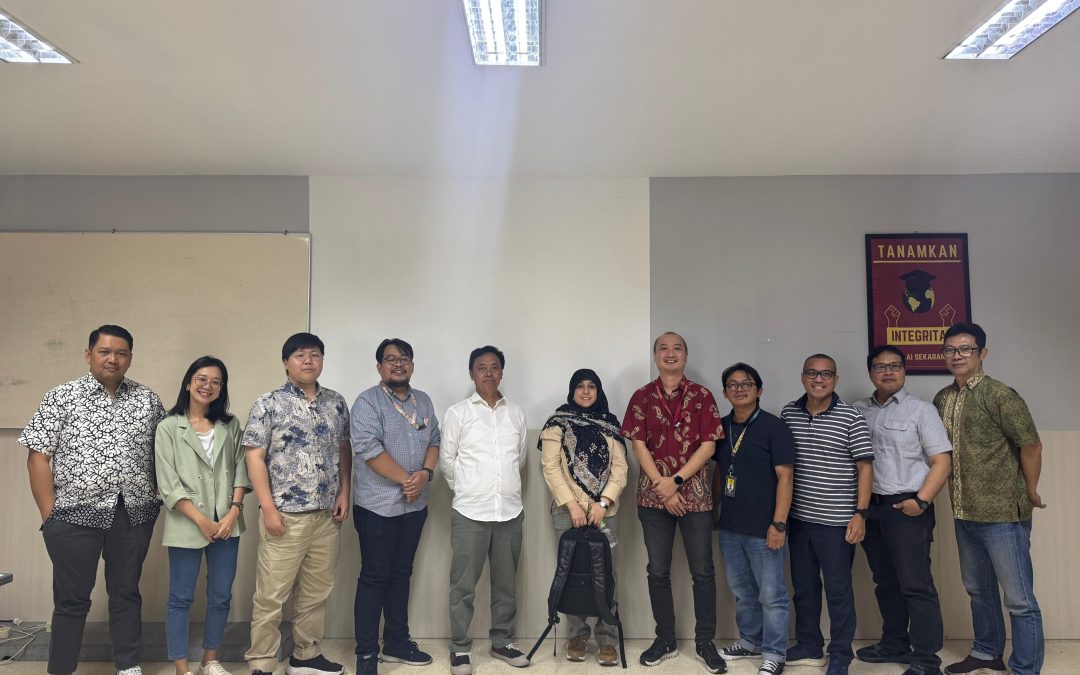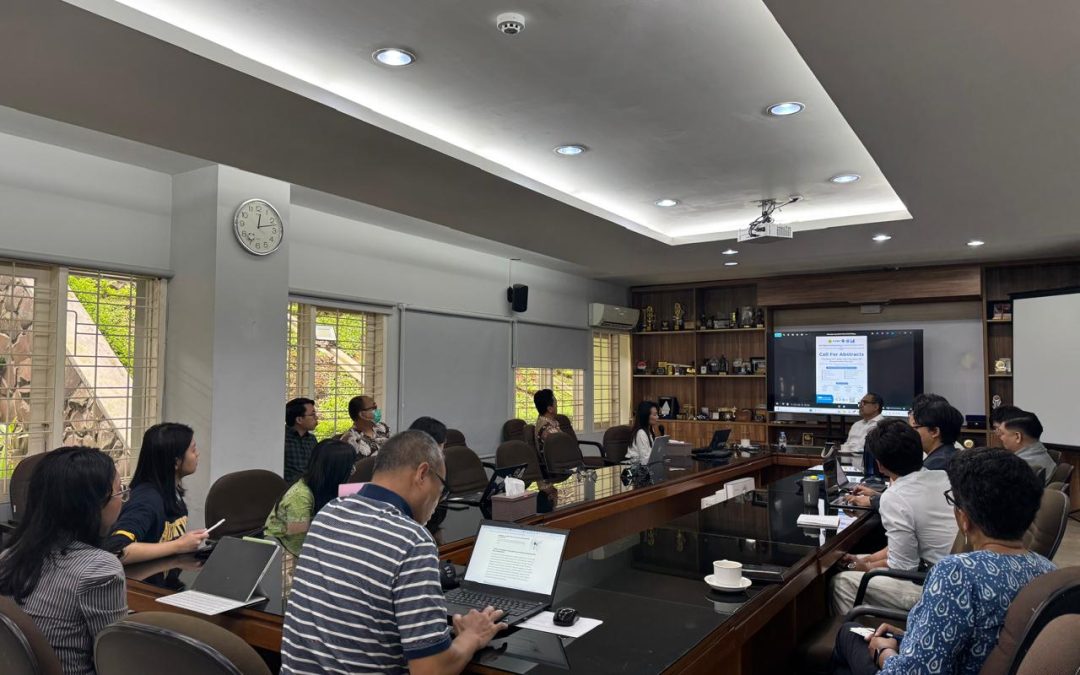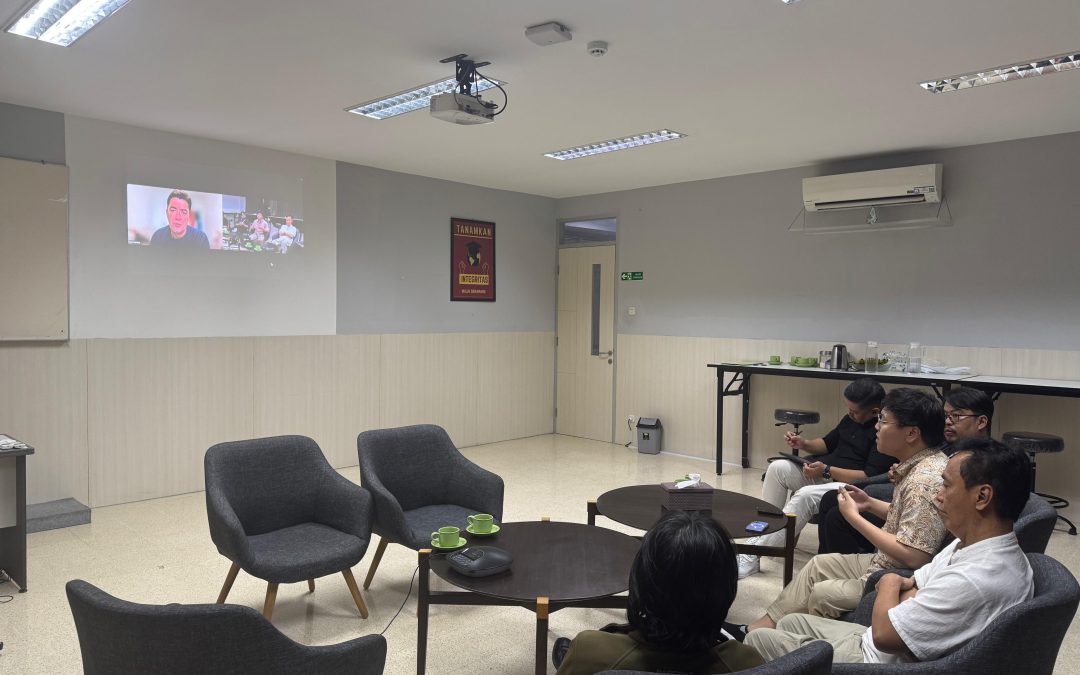Bandung, October 3, 2025: The Ministry of Trade, together with a number of related institutions, held a Discussion Forum on the Development of Accession and Preparation for the OECD Technical Review at the Trade Committee. This forum was led by the Chair of the Parahyangan Center for International Studies, Yulius P Hermawan, as moderator. The forum was held with the aim of discussing Indonesia’s readiness for the process of accession to the Organisation for Economic Co-operation and Development (OECD) and its relevance to national development targets as outlined in the 2025-2045 National Medium-Term Development Plan (RPJPN).
The meeting featured speakers from the Coordinating Ministry for Economic Affairs, the Indonesian Export Financing Agency (LPEI), the Center for Indonesian Policy Studies (CIPS), and the Ministry of Trade. In addition, this event was actively attended by representatives from universities and international relations student associations in Bandung, who enriched the discussion with their academic perspectives.
OECD Accession and National Development Strategic Direction
As an opening, Mr. Suyoto, a spokesperson from the Coordinating Ministry for Economic Affairs, emphasized that Indonesia’s participation in the OECD is a strategic step towards realizing the vision of Indonesia Emas 2045. This accession is in line with the objectives of the 2025-2045 National Medium-Term Development Plan, namely to achieve a minimum per capita income of USD 30,300 and increase the proportion of the middle class to 80%, in order to lead Indonesia to become a developed country. Cooperation with the OECD is aimed at supporting four national priority sectors, namely education, health, agriculture and food security, as well as digital transformation, which is also reflected in points 2, 7, and 8 of the Asta Cita.
In addition, Mr. Sutoyo also presented the OECD’s good practices in assisting reforms in various countries, such as South Korea, which has successfully cut 50% of its regulations to improve bureaucratic efficiency and transparency since joining in 1996. These reforms have enabled South Korea to escape the middle-income trap and become one of the ten largest economies in the world in 2000. In the field of education, OECD recommendations have improved the effectiveness of scholarships and student loans, increasing higher education participation from 66.3% in 2010 to 99.3% in 2022. In the health sector, the OECD developed a performance evaluation system that improved the efficiency and accessibility of services, raising life expectancy from 71.1 years (2000) to 79 years (2024). In addition, OECD support for agricultural policies has also helped expand fertilizer programs by 160% in Mexico, demonstrating the OECD’s tangible impact in promoting cross-sectoral reforms in its member countries.
Strengthening Export Financing and ESG Principles
Ms. Rini from Indonesia Eximbank highlighted four main components in the OECD export credit instrument, namely: anti-bribery, application of ESG (Environmental, Social, and Governance) principles in export credit distribution, export credit agreement rules to prevent unhealthy subsidy practices, and principles for providing safe and sustainable loans to developing countries. According to her, OECD regulations such as the Commercial Interest Reference Rate (CIRR) and Minimum Premium Rate (MPR) have helped create a level playing field for member countries. However, in their implementation, negotiations are needed so that they can be implemented gradually in accordance with the readiness of the national industry.
Regulatory Reform and Membership Optimization Strategy
Dr. Krisna Gupta from the Center for Indonesian Policy Studies (CIPS) highlighted the importance of regulatory reform to comply with OECD standards, particularly in the areas of trade, investment, and business competition. He recommended revising Law No. 8 of 1999 on Consumer Protection to add protection for children and digital consumers, evaluating foreign ownership limits in the shipping sector, and adjusting foreign direct investment (FDI) policies to be more open. In addition, he emphasized the need to update the Anti-Monopoly Law to create a more competitive market, reform data-based agricultural regulations, and strengthen renewable energy policies as part of Indonesia’s preparations for OECD accession.
Meanwhile, Mr. Ifan from the Ministry of Trade outlined three strategies for optimizing membership:
- The short-term strategy (1–2 years) focuses on data integration and analysis, increasing human resource capacity, and utilizing OECD membership to strengthen Indonesia’s position in the WTO and G20.
- The medium-term strategy (3–5 years) includes trade regulatory reform, FTA optimization and regional diplomacy, and active participation in OECD committees to promote the MSME agenda.
- The long-term strategy (6–10 years) is aimed at leading the Global South coalition in the OECD, strengthening the competitiveness of leading sectors, and accelerating the transition to green trade through the implementation of the OECD Green Growth Strategy.
In closing, the forum emphasized that the process of accession to the OECD is not only technical in nature, but also a strategic step towards more transparent, integrity-based, and competitive economic governance at the global level. The forum produced three main recommendations, namely legal and institutional reform, strengthening of operational policies, and increasing capacity and synergy among stakeholders.
Written by: Nazwa

